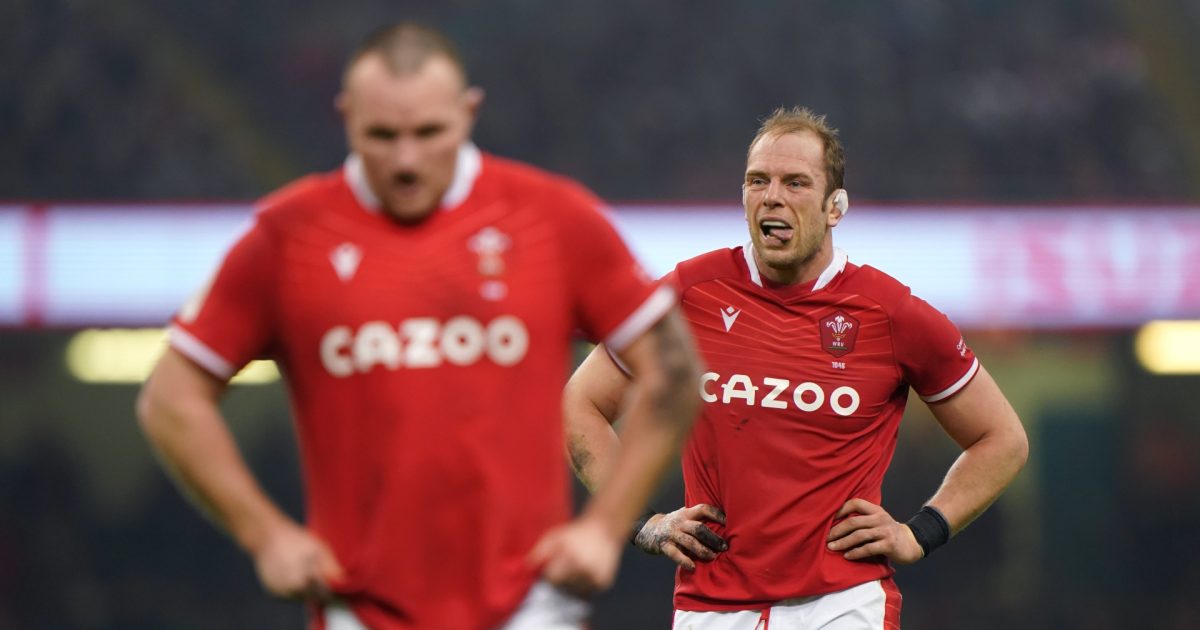Change is scary but Welsh rugby not changing is even more frightening

Change can be scary. Besides, if it’s not broken, why try to fix things? Except things are broken, very broken, in Welsh rugby and change is needed if this great rugby nation is to continue to compete for silverware and honours. Leaps into the unknown usually require a degree of faith. For Wales, though, this jump into the void would be more akin to the one made by Harrison Ford in The Fugitive as he stared down the barrel of a gun.
This weekend news broke that Ospreys, a club that has contributed 16 British and Irish Lions, might have to merge with the English Championship club, Ealing Trailfinders, just to keep the lights on. In any other year, this revelation would have had a seismic impact on the psyche of Welsh rugby but 2023 has already supplied a torrent of tectonic-shifting headlines.
Amidst the wreckage of accusations of sexism at board level, of strike actions from the national players and the possibility of unfulfilled Six Nations Tests, one glimmering positive emerged. The details are yet to be ironed out but it seems as if the 60-cap rule, which has been in place since 2017 to restrict Test players from playing club rugby outside of Wales – is set to be scrapped.
For those afraid of change, there is a handy reference point to alleviate fears. Back in 2018, the Springboks were a team without direction and low on confidence. Allister Coetzee was at the helm of a sinking ship. A first-ever home defeat to Argentina was supplemented by a first-ever loss to Italy and a 57-0 drubbing in New Zealand. By the time Coetzee was sacked after 25 Tests, he had a win rate of just 44 per cent – lower than any other Springboks coach with more than 12 games in charge.
Change can be scary but it is often needed. Rassie Erasmus answered the SOS call and proceeded to reorder the status quo by abolishing a 30-cap rule in South Africa. Less than two years later, Cheslin Kolbe, Faf de Klerk, Vincent Koch, Franco Mostert, Cobus Reinach and Thomas du Toit all featured in a triumphant World Cup campaign.
None of them would have been in Japan with the Springboks had the previous ruling been in place at the time. It would be overly simplistic to suggest that South Africa’s victory hinged on the selection of these six players, but there was no argument against the claim that the overall strength of the squad would have been greatly diminished without them.
Often, the fear of change is the manifestation of the fear of loss. But as far as Erasmus was concerned, the Springboks had nothing left to lose. They had slipped as low as seventh on World Rugby’s rankings in 2018 and hadn’t won a Rugby Championship title since 2009 when the tournament was still called the Tri-Nations.
Erasmus had a free swing. He could have implemented a change from green to purple for the Springboks on match days and it wouldn’t have blown the side any further off course.
What would Wales now lose by abandoning a selection policy that is in effect a restraint of trade? Well, as the conservative argument goes, it would hamstring the regions and weaken the four clubs that play in the United Rugby Championship. That theory would have merit if Cardiff, Scarlets, Dragons and Ospreys – who apparently need the help of a second-division English club 180 miles away to stay alive – were tearing up trees. Instead, they are stinking the place out.
After 15 rounds, Cardiff are the top-ranked Welsh side in the URC… in 10th place. Were it not for Zebre, who have lost 49 of their previous 50 matches, Welsh teams would occupy the bottom three places on the league table. Remind us again what the four clubs would be losing if some of their stars could leave for foreign shores?
Of course, it would be quite the exodus. Only nine members of Warren Gatland’s squad have more than 60 caps at present. Five of the remaining 37 currently play in England, but since they signed for their clubs before their Test debuts they are not currently restricted by the 60-cap rule.
Cardiff might lose the services of Josh Adams and Josh Navidi, but the players could personally gain from large pay packages at a French Top 14 outfit. The Dragons would miss Ross Moriarty and the Scarlets would struggle to replace both Wyn Jones and Samson Lee in the front row, but the depth of Welsh rugby would only develop as a consequence of their absence. And for a cash-strapped organisation, the WRU would surely benefit from having some of Adam Beard’s salary paid by someone else.
You can understand the apprehensions that some might have. If the wealthy nations can simply hoover up the world’s best talent, then the very existence of domestic leagues in less-resourced outposts would be under threat. But that is an anachronistic and timid way of analysing the current economic climate of a game now 28 years into professionalism.
Money, talent, coaching philosophies and broadcast deals regularly traverse the globe. South African Gary Gold was head coach of the USA until December. New Zealander Bundee Aki plays for Ireland. Welshman Aled Walters will soon be helping to improve the fitness standards of England. The examples go on and on…
The world has changed and unions that refuse to do so risk withering on the vine. This open borders approach has paid dividends in other sports. Just one member of Argentina’s FIFA World Cup-winning squad was on the books at an Argentinian club. Not that River Plate’s goalkeeper Franco Armani did much in Qatar last year, instead relying on his teammates who ply their trade elsewhere.
Change can be scary. But given the trajectory of Welsh rugby, not changing would be even more frightening.





































































